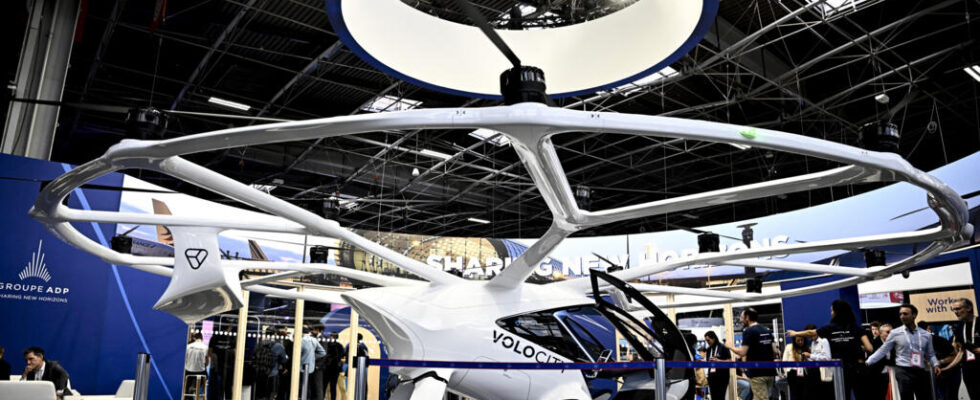The French government gave the green light on Tuesday, July 9, to a new floating platform for flying taxis in Paris. A decree published in the Official Journal authorizes the creation on the Seine of a ” helipad “, from where these electric helicopters will be able to take off and land for free demonstration flights during the Olympic Games. A means of transport contested, in particular by the city hall of the French capital.
3 min
VoloCity is the name of this small helicopter. It has two seats: the pilot and the passenger. The goal for the company that manufactures them: to demonstrate that it is a transport of the future in dense urban areas. To do this, nothing beats a takeoff and landing over the Seine. Every day, during the Olympic Games, around twenty flights are planned between 8 a.m. and 5 p.m. Taking into account its experimental nature “, the order limits the number of flights” at 900 ” for the entire duration of the experiment, i.e. ” until 31 December 2024 at the latest “.
The platform authorized by decree this Tuesday will be located on a barge on the Seine, moored at the Quai d’Austerlitz, in the east of Paris. This is the fifth of its kind, while four of these take-off and landing sites – ” vertiports » – already exist: they are located to the north of Paris at the Paris-Charles-de-Gaulle and Le Bourget airports, and to the west in the communes of Issy-les-Moulineaux and Saint-Cyr-l’École.
Several disappointments for flying taxis
Operators have been waiting for months for the government’s green light for this experiment, a showcase of decarbonized aviation. But Paris City Hall is opposed to it. It announced on Tuesday, July 9 that it would appeal this decision. The entire city council had also voted against the experiment with flying taxis. Many elected municipal officials in Paris, from the majority or the opposition, denounce a ” absurd project ” and an ” ecological aberration “.
Promoters of these devices, presented as smaller, lighter and less noisy than helicopters, will have to make do with free demonstration flights during the Olympic Gamesdue to the failure to obtain certification from the European Aviation Safety Agency (EASA) in time. They are now counting on certification ” in autumn “.
The project also received an unfavourable opinion in February 2024 after a public inquiry. In September 2023, the Environmental Authority had judged ” incomplete ” the impact study of the future experimental base of flying taxis planned on the Seine. It called into question noise and visual pollution, energy consumption and the risk to the safety of passengers, as well as Parisians.
” It is a very good thing that this experiment can take place. “, on the contrary reacted the entourage of the president of the Île-de-France region Valérie Pécresse, who supported the project led in particular by the German company Volocopter to the tune of one million euros.
” The ambulance of tomorrow » ?
Faced with criticism, the Aéroports de Paris (ADP) group, associated with the project, and its partners insist on “ the utility » of these devices and the importance of staying in the innovation race.
For his part, the Minister Delegate for Transport Patrice Vergriete declared in June: “ I’m not a fan of the flying taxi […] but I do not want, in the name of some ideology or other, that we deprive ourselves of this experiment. […]. This could be the ambulance of tomorrow “The promoters of these flying taxis insist on the possibility of using them later – thanks to larger versions – for emergency medical transport, whether of patients or transplants.
Read alsoChina: “Low-altitude economy” and flying taxis ready for takeoff
